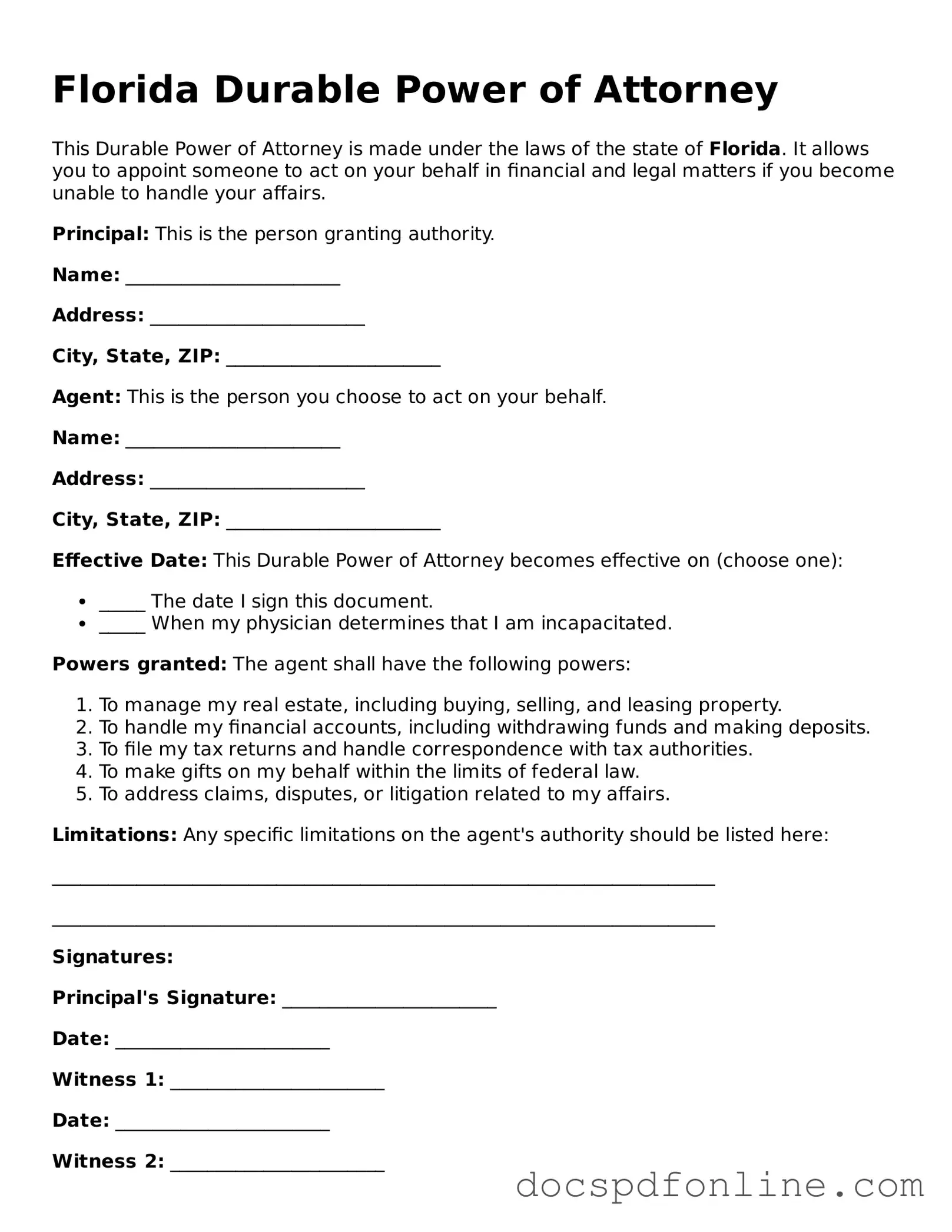Legal Durable Power of Attorney Template for Florida
A Florida Durable Power of Attorney form is a legal document that allows an individual, known as the principal, to appoint someone else, called an agent, to make decisions on their behalf. This authority can cover financial matters, healthcare decisions, and more, ensuring that the agent can act even if the principal becomes incapacitated. Understanding this form is essential for anyone looking to secure their future and ensure their wishes are honored.
Launch Editor Now

Legal Durable Power of Attorney Template for Florida
Launch Editor Now
Save time — finish this form fast
Finish Durable Power of Attorney online — edit, save, download made easy.
Launch Editor Now
or
↓ PDF File
